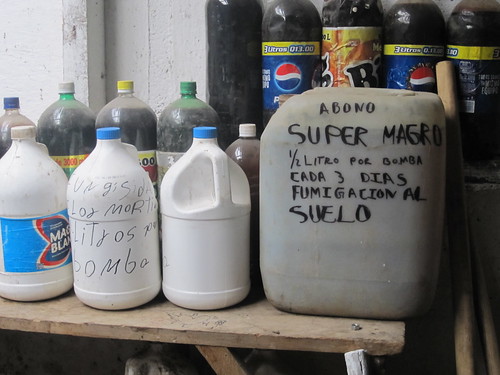What’s the difference between organic and inorganic fertilizer?

Image by onepercolated
Question by яιкιуα♥: What’s the difference between organic and inorganic fertilizer?
Does organic fertilizer just mean manure, or is it any material found in earth. And are inorganic fertilizers just man made? What are the materials in them? Sorry, I am really confused and I don’t know the difference.
Feel free to answer in the comment section below

You basically answered your own questions already. Organic fertilizers include manure and other natural things. For example, earlier farmers in the east coast of US harvested some kind of sea animals to use as fertilizers. Inorganic is man-made. The most common is ammonium nitrate.
Ucrystal.com
May 12, 2011 at 4:18 am
organic fertilizer can be anything that is animal, vegetable or mineral based as long as the minerals are in a raw, unprocessed state such as rock powders which are crushed but not heated or combined with other things. Also no petroleum products such as wetting agents or surfactants can be used (surfactants from natural materials are allowed). But the fertilizers can be man made
Organic fertilizers include raw and aged manures, compost, compost tea, rock powders, pelleted manure products, green manures (crops grown specifically to be plowed into the soil). All organic fertilizers feed the soil and help us to make more soil
Conventional fertilizers can contain about anything including municipal sludge, industrial waste, slurrys from factory farms (slurry is a combination of animal poop, water, and other things), military waste. Many conventional fertilizers make great bombs, such as anhydrous ammonia. Conventional fertilizers do nothing to feed the soil nor help in increase soil mass.
Ohiorganic
May 12, 2011 at 4:57 am